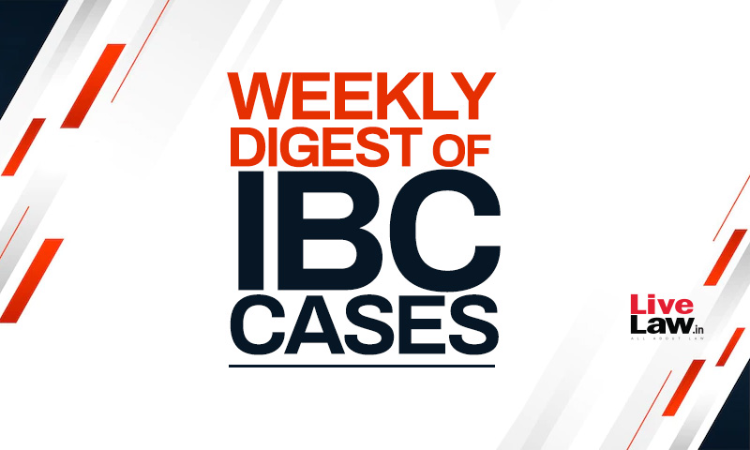Next Story
12 Sept 2022 3:00 PM IST
Supreme Court CIRP Can Be Initiated Against Corporate Guarantor Without Proceeding Against Principal Borrower: Supreme Court Case Title: K Paramasivam vs Karur Vysya Bank Ltd Case No.: 2022 LiveLaw (SC) 742, CA 9286 OF 2019 The Supreme Court Bench comprising of Justice Indira Banerjee and Justice JK Maheshwari, has held that Corporate Insolvency Resolution Process (CIRP) can...

